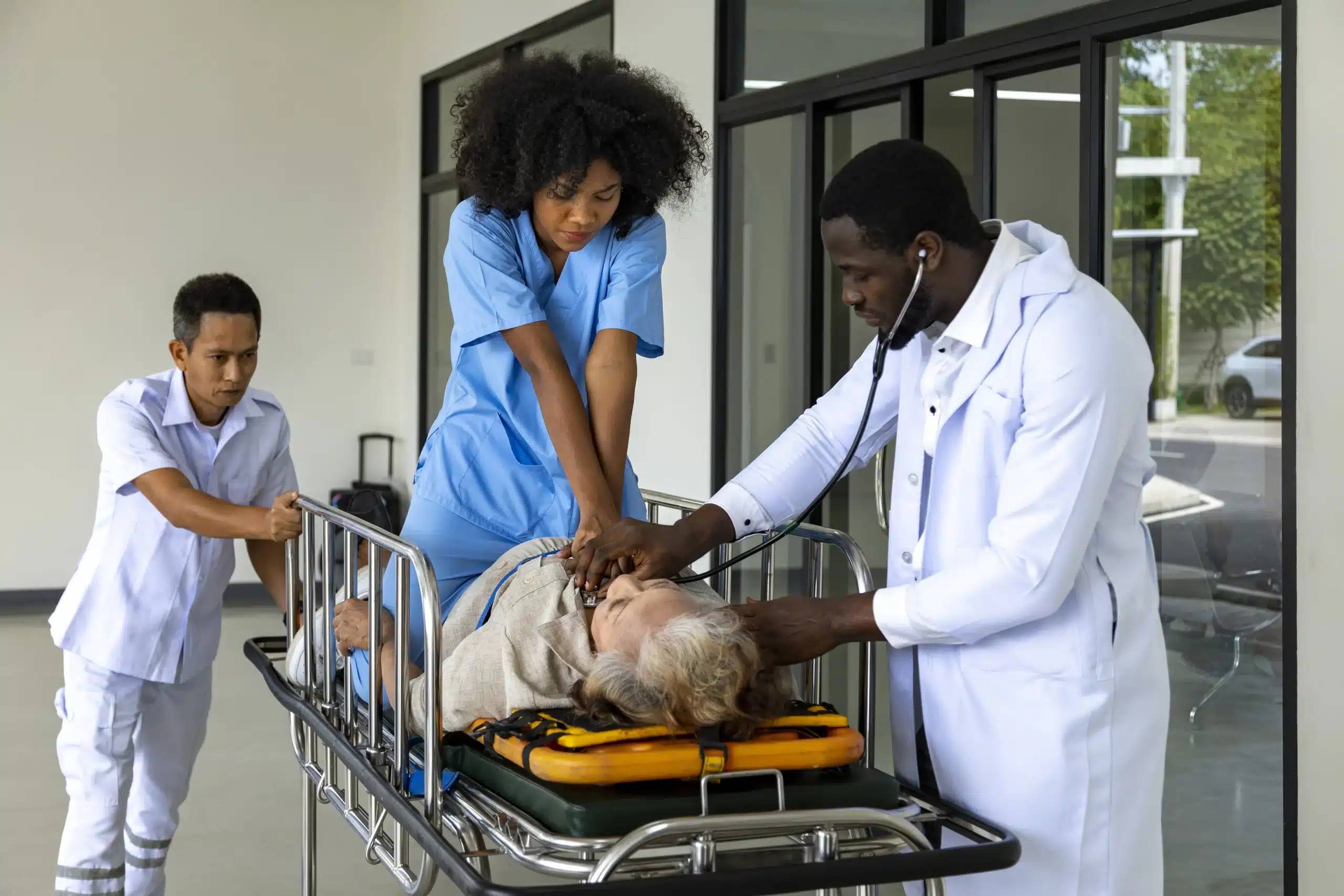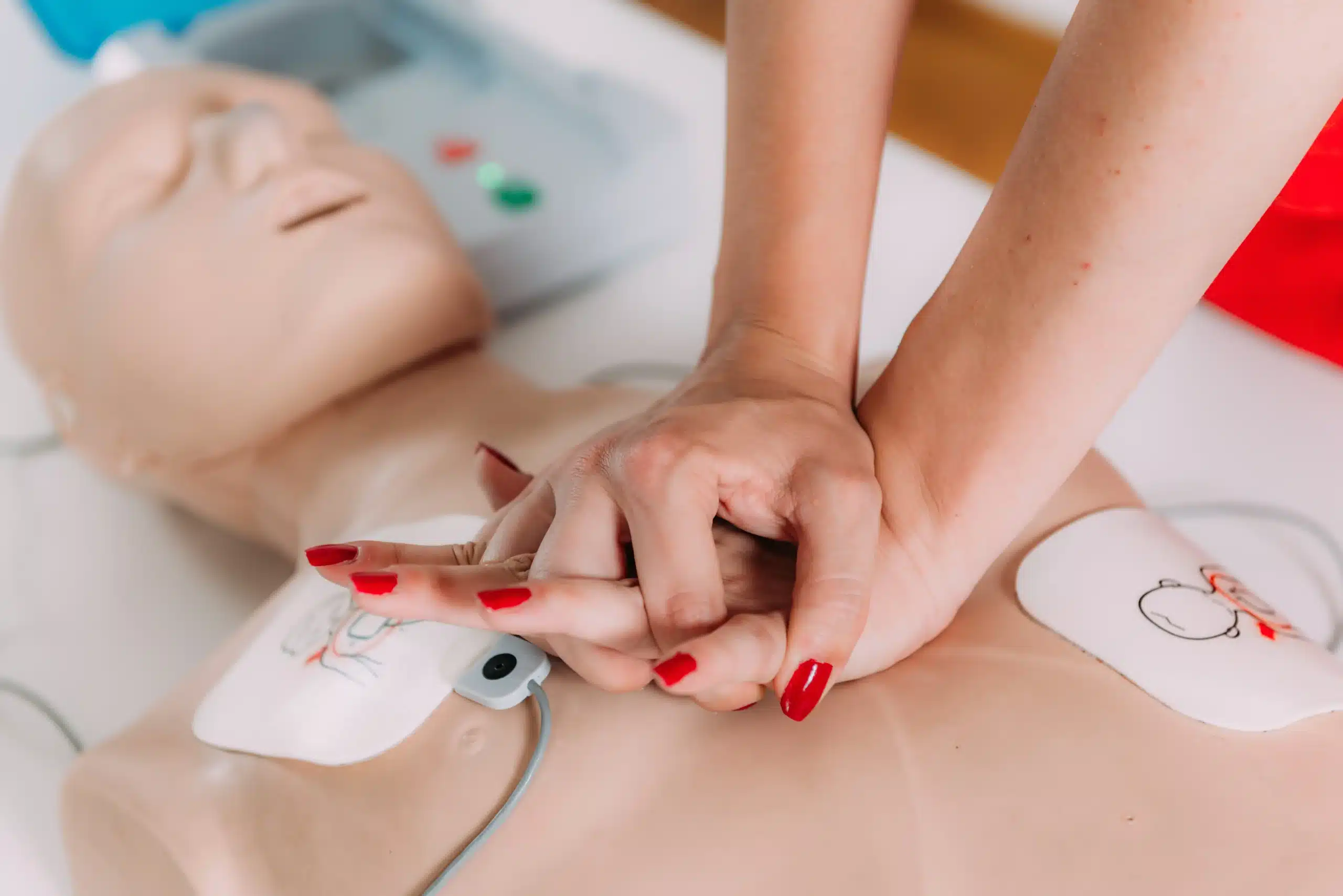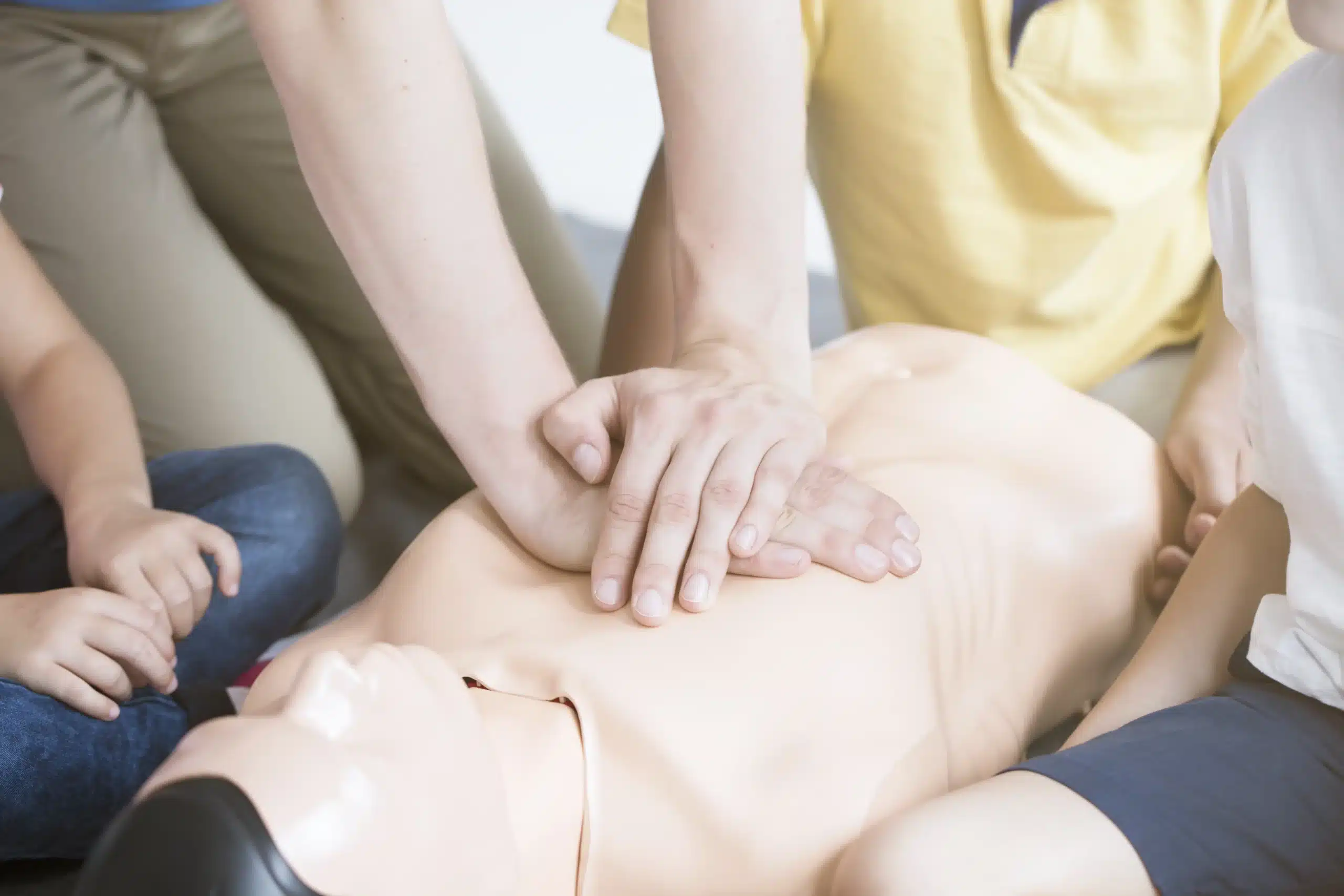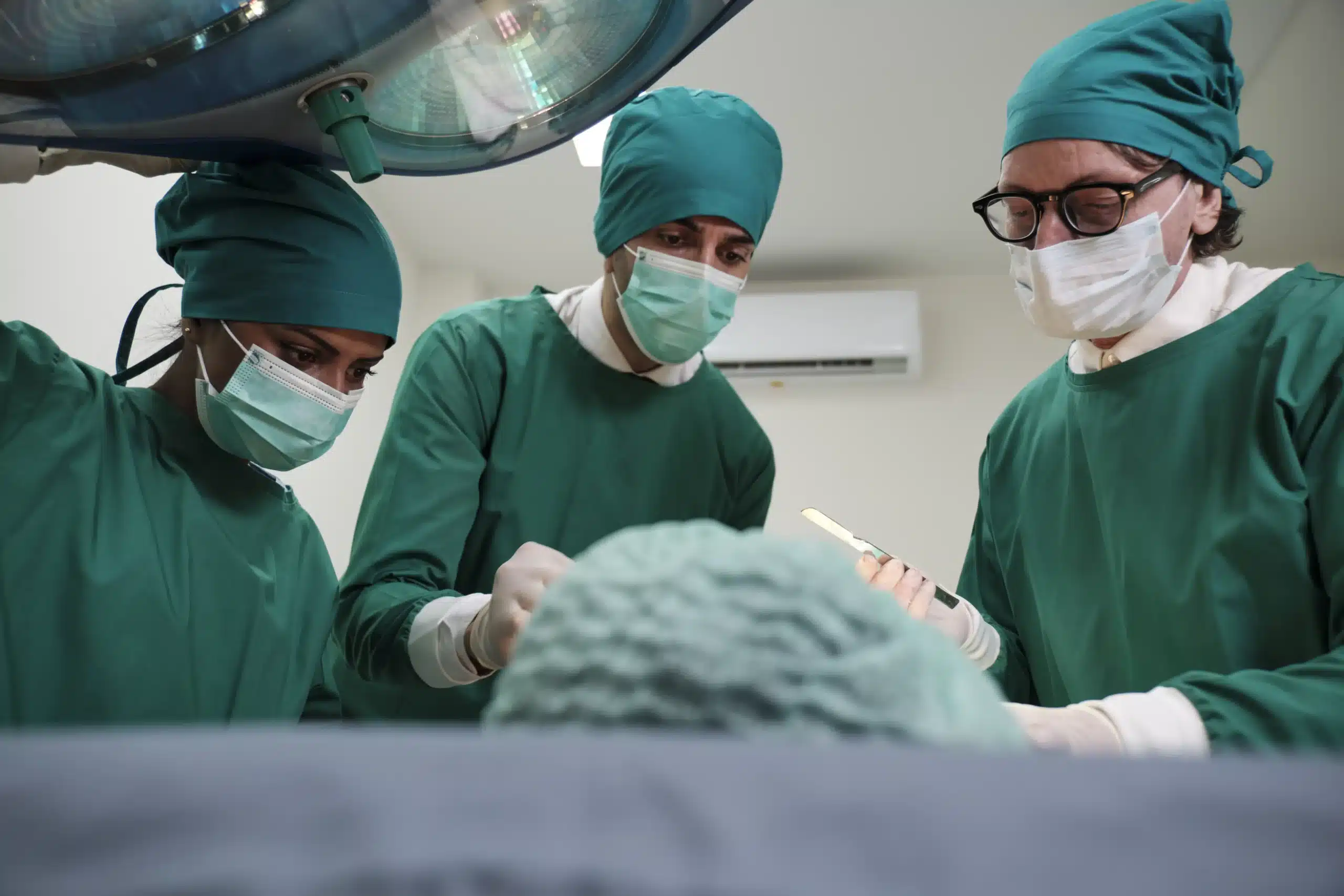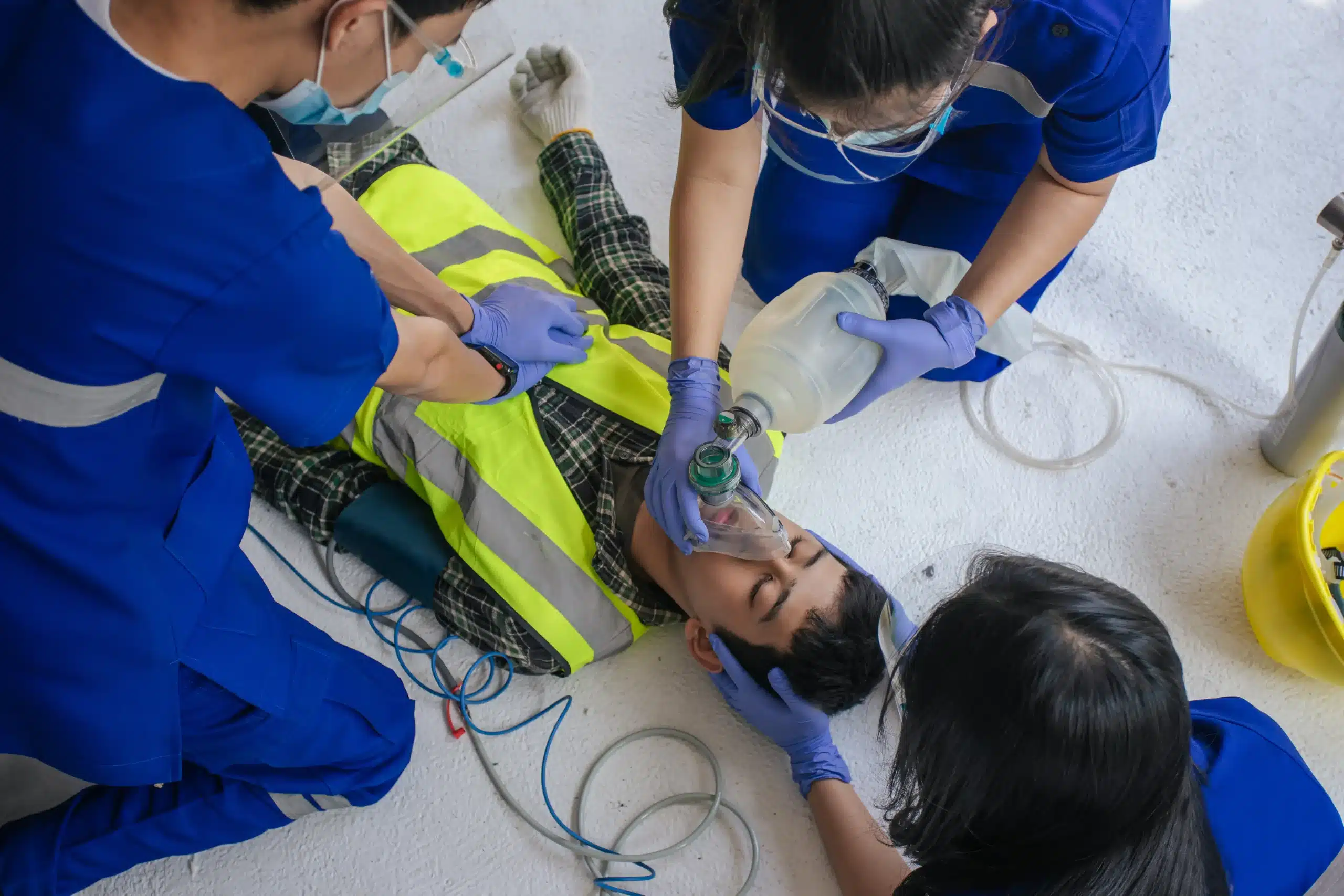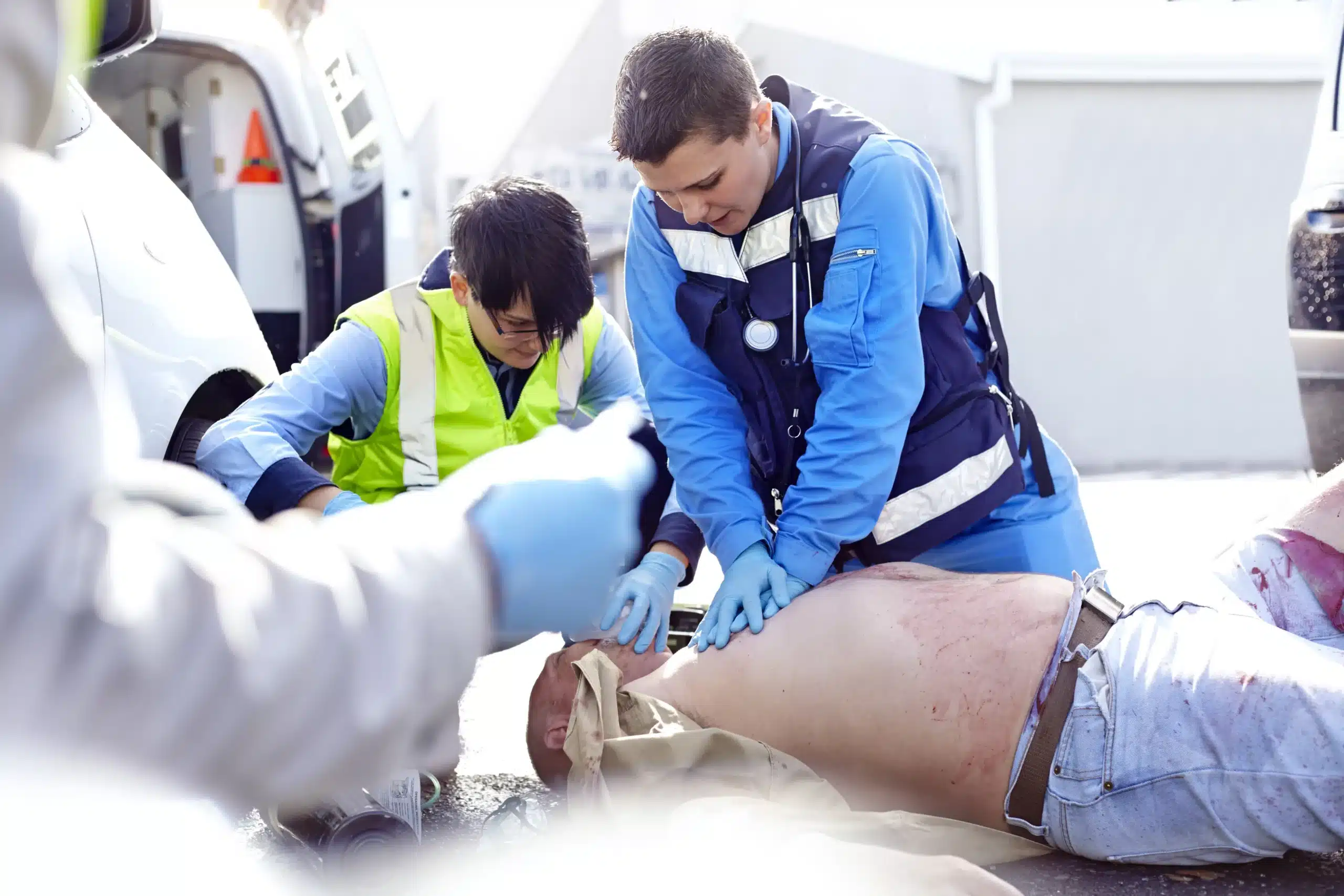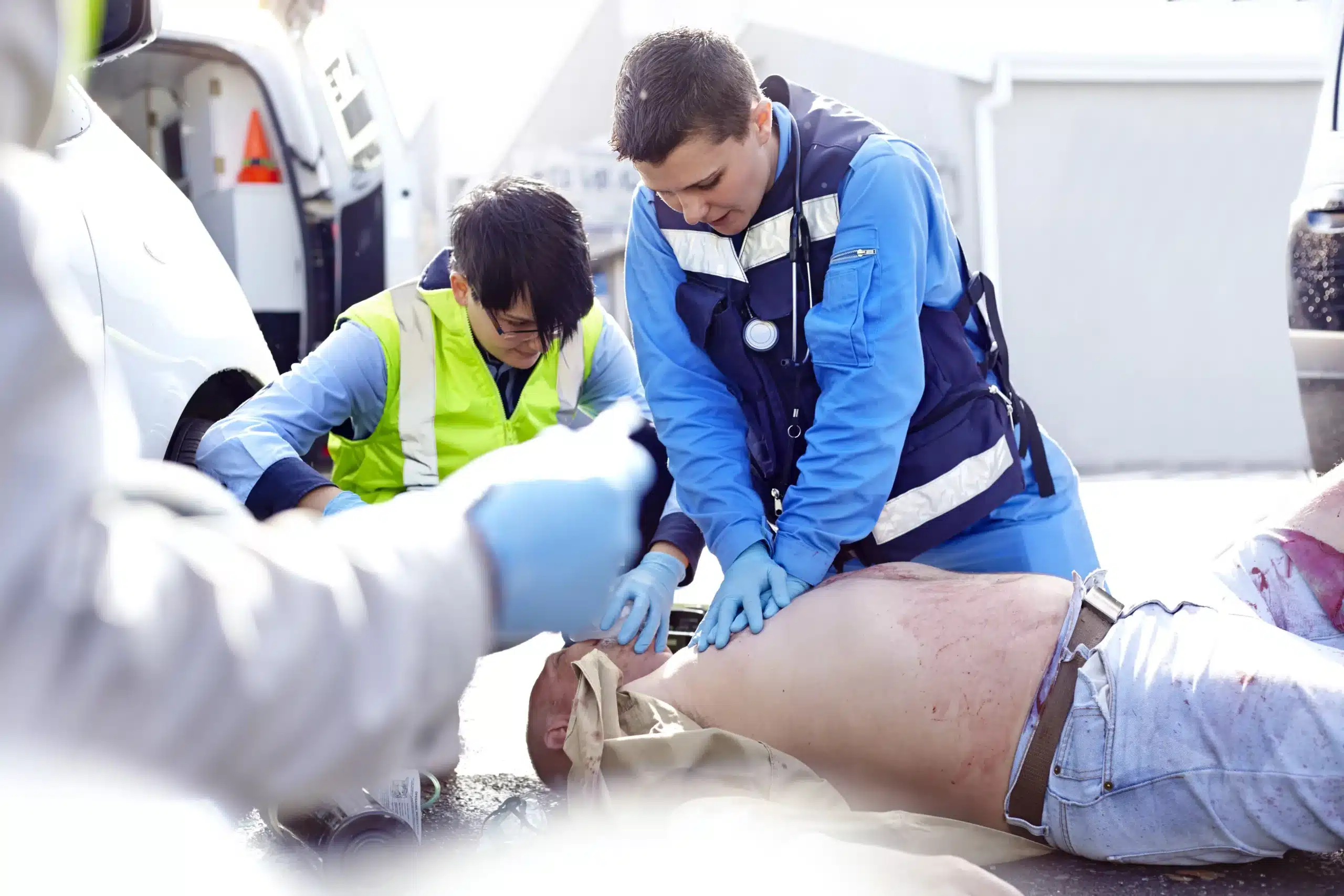Emergencies can happen anytime, anywhere. Being prepared can make all the difference. BLS certification in Hayward provides you with the skills and confidence to respond effectively in critical situations. This guide will explore the ins and outs of BLS certification, from understanding the core skills to finding the right course in Hayward. We’ll cover the benefits of BLS training, the different certification options available, and the steps involved in getting certified. Whether you’re a healthcare worker, a student, or simply a concerned citizen, this guide will help you understand the importance of BLS and how to get certified in Hayward. We’ll also discuss the costs associated with BLS certification and how to maintain your certification over time.
Key Takeaways
- BLS certification provides essential life-saving skills: Learn CPR, AED use, and airway management techniques to confidently respond to emergencies, regardless of your background.
- Convenient BLS courses are available in Hayward: Hayward CPR Classes offers flexible scheduling and competitive pricing, making it easier than ever to get certified.
- Maintain your skills through recertification: Keep your BLS knowledge current and your skills sharp by recertifying regularly. This ensures you’re always prepared to provide effective care.
What is BLS Certification?
What is BLS?
BLS stands for Basic Life Support. It’s the foundation of emergency medical care, designed to provide the essential skills needed to respond to life-threatening situations. Think of it as the first line of defense in a medical crisis. BLS training equips you with the knowledge and techniques to potentially save a life. This training gives healthcare professionals and everyday people the tools to act quickly and effectively. BLS certification focuses on immediate intervention, including CPR, recognizing and responding to cardiac arrest, and using an AED.
What Skills Will I Learn?
In a BLS course, you’ll gain practical skills like performing high-quality CPR for adults, children, and infants. You’ll also learn how to use an AED (automated external defibrillator), a portable device that can help restore a normal heart rhythm. The course covers relieving choking and basic airway management techniques. These skills are crucial for responding effectively to various emergencies, from heart attacks to near-drowning incidents.
Why is BLS Important for Healthcare Professionals?
For healthcare providers, BLS certification is often a job requirement. It ensures they can provide immediate care in emergencies, stabilizing patients until more advanced medical help arrives. BLS training builds confidence and competence in handling critical situations, contributing to a safer healthcare environment for both patients and staff. It also emphasizes teamwork and communication, essential for coordinated responses during medical crises.
Is BLS Relevant if I’m Not in Healthcare?
Absolutely. While crucial for healthcare professionals, BLS skills are valuable for anyone. Knowing how to perform CPR and use an AED can make a difference in emergencies that happen anywhere, from homes and workplaces to public spaces. Parents, teachers, coaches, and anyone interested in being prepared for the unexpected can benefit from BLS training. It empowers individuals to take action and potentially save lives, even outside of a medical setting. Think of it as a life skill, much like knowing how to swim or change a tire – it might not be needed every day, but it’s invaluable when you do.
Where Can I Get BLS Certified in Hayward?
Finding the right BLS certification course can feel overwhelming, but several excellent options are available in Hayward. Let’s explore some of the leading providers in the area.
Hayward CPR Classes
Hayward CPR Classes offers various American Heart Association (AHA) certification courses, including BLS, ACLS, PALS, and CPR/First Aid. A major advantage is their flexible scheduling, with classes offered daily. They also provide on-site training for groups and offer group discounts, making them a convenient and cost-effective choice for organizations. You can learn more about their BLS certification course on their website.
Safety Training Seminars
Safety Training Seminars uses a blended learning approach, combining online learning modules (RQI) with in-person skills testing. This format offers flexibility while still ensuring you receive hands-on training. You’ll receive your certification card immediately upon passing the skills test. For more information or to register, contact them.
CPR Training Center
The CPR Training Center in Hayward provides a comprehensive AHA-certified BLS course. Their classroom-based course typically lasts 3.5 hours, providing focused instruction and ample practice time. They are known for their high-quality instruction and customer service.
American Heart Association Training Centers
The American Heart Association maintains a network of training centers, ensuring consistent quality and adherence to their standards. These centers offer a standardized curriculum and experienced instructors. You can usually find a training center near you through the AHA website.
Red Cross Certified Providers
The Red Cross also offers CPR and BLS certification. They provide various learning formats, including in-person, online, and blended learning. Keep in mind that both CPR and BLS certifications are valid for two years and require recertification. The Red Cross website helps you understand the differences between CPR and BLS and choose the right course.
BLS Certification: Formats, Costs, and Duration
In-Person or Online: Which BLS Course is Right for Me?
BLS certification courses come in several formats. You can choose traditional in-person classes or opt for blended learning, which combines online coursework with an in-person skills practice component. In-person classes provide a structured environment with direct interaction with the instructor and other students. This format allows for immediate feedback and hands-on practice. Blended learning offers more flexibility, letting you complete the theoretical part online at your own pace before attending a shorter in-person session to demonstrate your skills. Consider your learning style and schedule when deciding which format best suits your needs. If you thrive in a traditional classroom setting and appreciate face-to-face instruction, in-person classes might be a good fit. If you need more flexibility and prefer self-directed learning, blended learning could be a better option.
How Long is a BLS Course and What are the Prerequisites?
A typical American Heart Association BLS certification class in Hayward takes about 3.5 hours to complete. There aren’t any prerequisites for BLS courses. This makes the training accessible to a wide range of people, from healthcare providers to those simply wanting to learn lifesaving skills. BLS training equips you with the knowledge and skills to respond to cardiopulmonary emergencies. It’s essential for healthcare professionals, first responders, and anyone working in a field where they might need to provide emergency medical care.
What Determines BLS Course Costs?
Several factors influence BLS certification course costs. These include the course format (in-person or blended learning), the training center’s location, and any included materials. While cost is a valid consideration, remember that BLS certification is an investment in your skills and ability to potentially save a life. The value of this training goes beyond the certification itself, empowering you to confidently respond to medical emergencies. Check with various providers like Hayward CPR Classes for their pricing and any available group discounts.
How Much Does BLS Certification Cost in Hayward?
BLS certification costs in Hayward can vary. Basic BLS CPR courses typically cost around $70. Other advanced certifications, like ACLS and PALS renewals, can range from $152 to $190. Blended learning options, with online coursework and a separate in-person skills session, may be available for around $63, plus an additional fee for the hands-on portion. Contacting providers directly is always best to get the most up-to-date pricing. Hayward CPR Classes offers a range of courses and competitive pricing. You can find their contact information on their contact page. They also offer other courses like RQI classes and more specialized training. For those interested in advanced cardiovascular life support, explore their ACLS certification options.
What Happens in a BLS Course?
This section gives you a preview of what to expect in a BLS course, from hands-on practice to equipment usage and the certification process. Understanding these elements will help you feel prepared and confident going into your training.
Hands-On Practice
BLS courses aren’t just lectures. They heavily emphasize hands-on learning to build muscle memory and confidence. You’ll actively practice core life-saving skills like chest compressions and giving rescue breaths on adult, child, and infant manikins. This practical training is crucial for developing the rapid and effective responses needed in real-world emergencies. You’ll work with other students, often in scenarios that simulate real emergencies, to reinforce your learning and teamwork skills. This hands-on approach ensures you gain practical experience and confidence in your abilities.
Using Medical Equipment
A key part of BLS training involves familiarizing yourself with essential medical equipment. You’ll learn how and when to use an Automated External Defibrillator (AED), a portable device that can help restore a normal heart rhythm. The course provides hands-on practice with AED trainers and CPR manikins, allowing you to become comfortable using this life-saving technology. Working with these tools in a training environment builds your confidence for real-world scenarios.
Getting Certified: Assessments and Requirements
To receive your BLS certification, you’ll need to demonstrate your proficiency through both written and practical exams. The written exam tests your knowledge of BLS principles and procedures, while the practical exam evaluates your ability to perform the skills you’ve learned. These assessments ensure you meet the American Heart Association’s standards for BLS competency. Successful completion earns you your BLS certification card, valid for two years. Remember that regular training and recertification are essential for staying current with the latest guidelines and techniques in emergency medical care. Staying up-to-date ensures you can provide the most effective care in emergencies.
How Do I Choose a BLS Provider?
Choosing the right BLS provider is a crucial step towards getting a high-quality education and gaining confidence in your lifesaving skills. Here’s what to consider:
Check Credentials and Accreditation
First, verify the provider’s credentials. Ensure the organization is accredited by a recognized body like the American Heart Association (AHA). This accreditation confirms the training aligns with industry standards and equips you with the skills to handle real-world emergencies. BLS certification is essential for healthcare providers, first responders, and other professionals who may need to provide emergency medical care. A solid understanding of BLS principles can make a real difference in life-or-death situations. For example, the Online Safety Trainer highlights the importance of BLS certification for responding to cardiac arrest, respiratory distress, and airway obstruction. At Hayward CPR Classes, we are a woman-owned AHA Training Center, offering the lowest prices in Alameda County.
Find a Course That Fits My Schedule
Life gets busy, so flexibility is key when selecting a BLS course. Look for providers offering a range of scheduling options. Think evening classes, weekend sessions, or even online courses that allow you to learn at your own pace. This is especially helpful for those juggling work, family, or other commitments. Convenient scheduling ensures you can fit this important training into your life without major disruptions. Hayward CPR classes offers daily classes in over 60 cities. The ability to refresh your skills and stay current with the latest advancements is also important, as the CNA Training Institute points out when discussing the benefits of BLS renewal courses. We offer a variety of courses including BLS, ACLS, PALS, and First Aid.
Look for Qualified Instructors
Your learning experience hinges on the quality of instruction. Seek out certified instructors with a strong background in emergency medical care. Experienced instructors can provide practical insights, answer your questions effectively, and create a supportive learning environment. Their expertise makes the training more engaging and relevant to real-world scenarios. BLS Update emphasizes how BLS training provides healthcare professionals with essential lifesaving skills and knowledge, highlighting the vital role of qualified instructors. At Hayward CPR Classes, our instructors bring years of experience to the classroom, ensuring you receive top-notch training. Contact us to learn more about our instructors and upcoming courses. We also offer group discounts.
Register for Your BLS Course: A Step-by-Step Guide
How to Register
Ready to sign up for your BLS class? Visit the Hayward CPR Classes website to view our course schedule and register. We offer a variety of American Heart Association-certified courses, so you can find the perfect fit. Our registration process is straightforward, and you can choose from different learning formats, including in-person and blended learning (a mix of online and in-person sessions).
Tips for Getting a Spot
BLS classes can fill up quickly, so early registration is recommended. Check the Hayward CPR Classes website frequently for the latest schedule and pricing. We update it regularly to provide you with the most current information. You can also contact us with any questions.
Prepare for Your Course
Your BLS certification course will take approximately 3.5 hours. You’ll receive your American Heart Association BLS Certification eCard the same day you complete the course. We recommend bringing your own BLS Provider Manual. If you don’t have one, you can purchase it from us when you register for a class.
How Do I Maintain My BLS Certification?
It’s a common misconception that BLS certification is a one-and-done deal. Like many certifications in healthcare, your BLS certification expires, typically every two years. Staying current with your BLS skills is critical, especially if you work in a healthcare setting. Regular renewal ensures you’re prepared to handle emergencies effectively and confidently.
Renewing Your Certification
Renewing your BLS certification is straightforward. You can find BLS renewal courses in Hayward. These courses cover the latest guidelines and techniques from the American Heart Association, keeping your skills sharp and your knowledge current. Don’t let your certification lapse—stay prepared and confident in your abilities.
Stay Up-to-Date
Even between renewals, it’s helpful to stay informed about updates or changes in BLS procedures. The American Heart Association periodically releases updated guidelines, and knowing these changes can help you provide the best possible care. Check their website for valuable information and updates.
Continuing Education
Think of BLS certification as part of your ongoing professional development. Continuing education demonstrates your commitment to providing high-quality care. Regularly practicing your BLS skills and seeking additional training can boost your confidence and effectiveness during emergencies. Consider exploring advanced certifications like ACLS (Advanced Cardiovascular Life Support) or PALS (Pediatric Advanced Life Support) to further enhance your skillset. These courses build upon your BLS foundation, equipping you to handle more complex medical situations.
BLS Certification: Myths vs. Facts
It’s easy to get confused about the facts surrounding BLS certification. Let’s clear up some common misconceptions.
Debunking BLS Myths
One myth is that BLS certification is just for people starting out in healthcare. Actually, BLS training is vital for both new and seasoned healthcare professionals, ensuring everyone stays up-to-date on the latest life-saving techniques. Another misconception? That BLS certification is a one-and-done deal. Regular recertification is key to keeping your skills sharp and aligning with current guidelines. Finally, some believe BLS training is only for healthcare providers. Not true! BLS certification equips anyone—parents, teachers, coaches—with essential skills like using an AED or helping someone who is choking. These skills can make a real difference in everyday emergencies.
Why Recertification Matters
Regular BLS training and recertification keeps your skills fresh and introduces you to new advancements in emergency care. Think of it as a refresher course, reinforcing your knowledge and giving you the confidence to handle real-life emergencies. Plus, many healthcare roles require BLS certification, and recertification ensures you meet those requirements and stay at the top of your game. It demonstrates your commitment to providing high-quality care.
Who Needs BLS in Hayward?
BLS certification is essential for a wide range of professionals in Hayward, including healthcare providers, first responders, and those in public safety roles. These individuals are often the first on the scene in emergencies like cardiac arrest or respiratory distress. But BLS certification isn’t limited to these professions. Basic Life Support training is valuable for anyone who wants to be prepared to help in a crisis. Whether you’re a childcare provider, a teacher, a coach, or simply a concerned citizen, having BLS skills can empower you to make a difference in your community. Consider getting certified—it could save a life.
How Are BLS Skills Used in Real Life?
Knowing BLS can make a real difference in various situations. From life-or-death emergencies to promoting overall community health, BLS skills are invaluable. Let’s explore how these skills play out in real-world scenarios.
Emergency Response
BLS is the first line of defense in medical emergencies. Think cardiac arrest, respiratory distress, or someone choking. These are the moments when BLS skills truly shine. Healthcare professionals, first responders, and other trained individuals rely on their BLS training to assess the situation, perform CPR, and use an AED. These immediate interventions can significantly improve a person’s chances of survival until paramedics arrive. BLS training prepares these professionals to quickly recognize and respond to these critical situations, providing essential support in the most crucial moments.
Workplace Safety
Having employees trained in BLS creates a safer work environment. BLS certification equips people with the skills to handle medical crises that might arise on the job, whether it’s a heart attack, a near-drowning, or a severe allergic reaction. This preparedness not only potentially saves lives but also fosters a culture of safety and well-being. Regular training and recertification ensure that employees stay current with the latest procedures and best practices in emergency medical care. Contact Hayward CPR Classes to learn more about group discounts for workplace training.
Community Health Impact
BLS skills extend beyond professional settings, making a positive impact on community health. Knowing how to perform CPR and use an AED empowers individuals to respond effectively during emergencies in their communities, at home, or even while traveling. This widespread knowledge of BLS creates a network of lifesavers, ready to step in when needed. BLS training is accessible to anyone, regardless of their professional background, and contributes to a more prepared and resilient community. It’s about empowering individuals to take action and potentially save a life, making our communities safer for everyone. Check out our course schedule to find a BLS class near you.
Related Articles
- BLS for Healthcare Providers in Union City: A Guide – Hayward CPR Classes
- BLS Courses in Hayward: The Complete Guide – Hayward CPR Classes
- BLS Renewal in Hayward: Your Easy Guide – Hayward CPR Classes
- BLS Classes in Hayward: Your Complete Guide – Hayward CPR Classes
- BLS Renewal in San Leandro: A Complete Guide
Frequently Asked Questions
Is BLS certification the same as CPR certification?
While CPR is a core component of BLS, BLS certification is more comprehensive. It covers a broader range of skills, including using an AED, team dynamics during resuscitation, and basic airway management. Think of BLS as building upon CPR, providing a more well-rounded approach to emergency medical care.
How long does my BLS certification last, and how do I renew it?
BLS certification is typically valid for two years. Renewal involves taking a recertification course, which covers the latest guidelines and techniques. This ensures your skills remain current and aligned with the most up-to-date practices in emergency medical care. Check with your certifying organization or training center for specific renewal requirements. Hayward CPR Classes offers recertification courses.
What if I don’t work in healthcare? Is BLS still relevant for me?
Absolutely! BLS skills are valuable for anyone, regardless of their profession. Knowing how to respond to emergencies like choking or cardiac arrest can make a difference in any setting, from your home to a public space. It empowers you to act quickly and potentially save a life, even outside of a medical environment.
What can I expect during a BLS course?
Expect a mix of interactive learning and hands-on practice. You’ll learn the theoretical principles behind BLS and actively practice skills like CPR and using an AED on manikins. Many courses also incorporate simulated scenarios to help you apply your knowledge in a realistic setting.
How do I choose a reputable BLS training provider?
Look for providers accredited by a recognized organization like the American Heart Association. Check for qualified instructors with extensive experience in emergency medical care. Consider factors like course format (in-person or blended learning), scheduling options, and overall cost when making your decision. Reading reviews and testimonials can also offer valuable insights into the quality of training provided.
